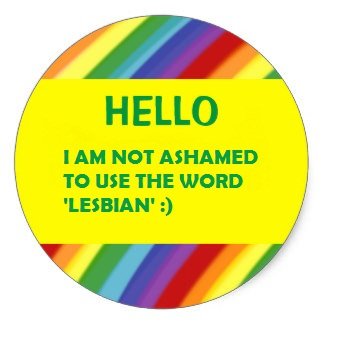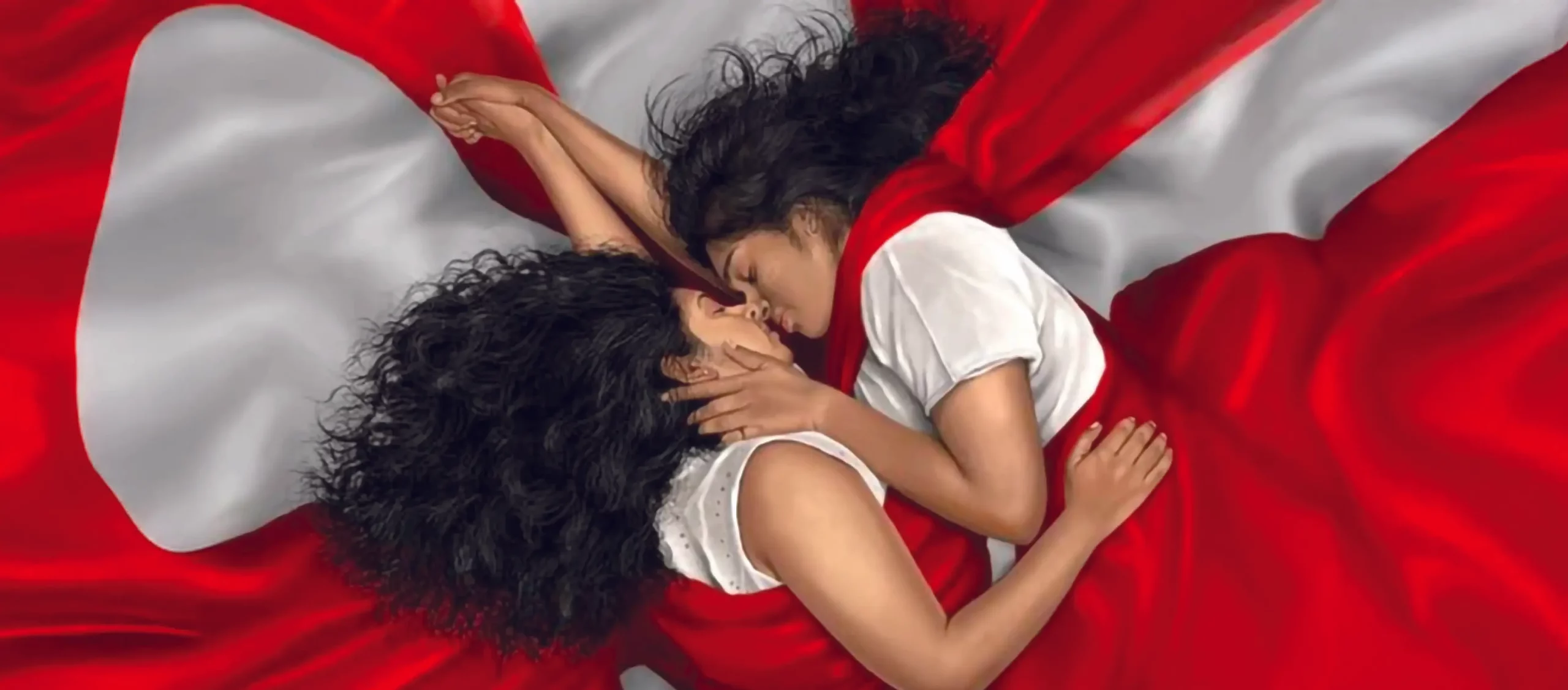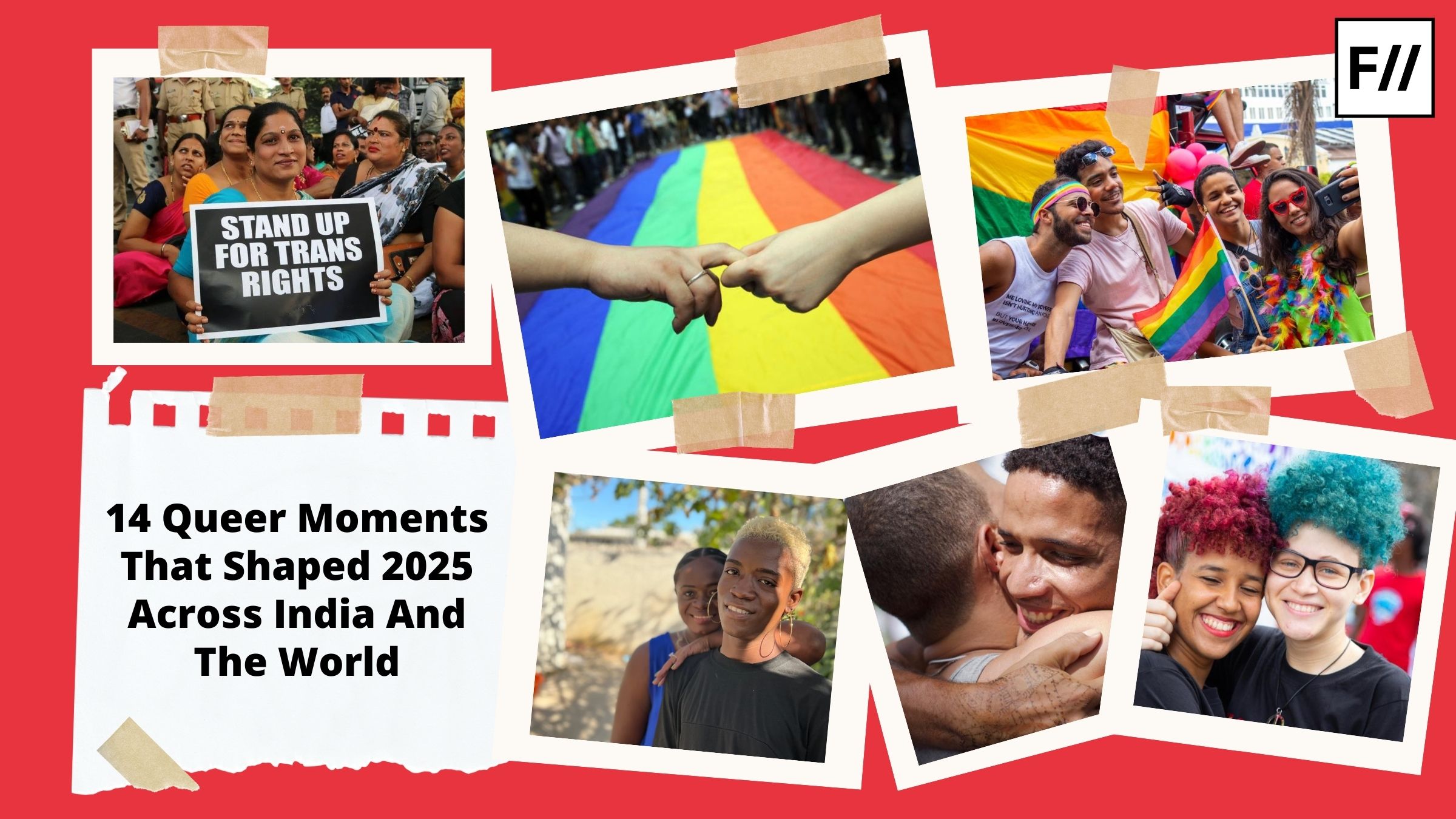Few days back, I put a status message on Facebook about a campaign for LGBTQ rights which used the word ‘gay’ instead of ‘lesbian’ for woman loving another woman. Several comments kept pouring in. One person said, the term gay is much easier to say than the word ‘lesbian’; someone commented on why I am questioning people’s choice of identities and labels for themselves; It’s about people’s ‘choice’; one gay, feminist friend said that he mostly introduces himself as a ‘lesbian’. Since then, I have been thinking about the word ‘lesbian’, its usage or rather people’s hesitance about using the word lesbian.
In my earlier organisation Nirantar, I was a gender and sexuality trainer. They do gender based training for teachers of government schools and programmes. People in Nirantar had written a chapter on ‘citizenship’ for a SCERT text book and used the pronoun ‘she’ instead of the generic ‘he’. In the Hindi textbook, the gender of the subject was also changed to ‘she’. Nirantar had always been critical of language and being in Nirantar, I learnt a lot about the politics of language with them. We used that chapter for teacher’s trainings. In a few teachers’ trainings, male teachers objected to the chapter and said that the ‘female’ pronoun is imposed on them. And a female pronoun cannot be generic but a male pronoun can be. I see the same super imposition of the ‘gay’ identity in the lesbian and gay community to mean both lesbians and gays. ‘Gay’ is in fact understood to include lesbians, bisexuals, queer women, transgender persons as well as gay men.
I feel naked during presentations and trainings when I use the word lesbian.
I have been having discussions with Ritambhara Mehta, queer, feminist activist, friend, colleague and Jaya Sharma, feminist, queer kinky activist, writer, and friend about the word ‘lesbian’ and its usage.
Jaya says, “I remember from the Sangini days that some women used to prefer the term gay to lesbian. For the butch women I think it may have been that they found the term lesbian too feminine because, by definition lesbian means a woman attracted to a woman. So gender is inherent in the term itself. This term lesbian being entirely about women might have been too much in context, in which we did not have the language of transgender or queer. I’m talking of the late 90s, early 2000s.
Although now there are these and many more terms, I still find some gender assigned female at birth persons who do not identify as women, or who are more masculine, preferring the term gay to lesbian. For the more feminine women in the Sangini days I think it was that the term lesbian sounded too sexual. Although I now use the term queer for myself, I did identify as lesbian when I first joined the community, even though I was bisexual. Perhaps as a political act, or more likely because it was not so acceptable to be bisexual. I also find the word lesbian a bit unaesthetic. There is something about the way that it makes the mouth move that I don’t quite like. Although I like its history and I think it is still a powerful word.”
Also Read: In Conversation With SexDis On Sexuality, Disability And Accessibility
I told her that I like the sexualness attached to word Lesbian’ and I like the word because it sees women as sexual beings. For this she says, “I don’t like the sexualness of it maybe because I have certain associations other than sex. Like when I used to make presentations at feminist spaces I used to feel naked during tea breaks. Not because anyone looked at me strangely but maybe at an unconscious level, I felt I was exposing myself”.
I agree with her about feeling naked during presentations and trainings when I use the word lesbian. In known spaces, this discomfort does not come through, but in unknown spaces, I feel people are imagining me in bed with some women in various sexual positions.
Jaya also talked about an unconscious dimension which she has started exploring recently. “I recently connected my discomfort with the word lesbian which is about a loss of innocence I experienced vis a vis my mother, when I came out to her. Her knowing about my sexualness aggravated because it was now for a woman. I feel that heterosexuality, particularly when cemented in marriage, helps in not feeling discomfort, perhaps at an unconscious level, about our parents’ knowledge that we are sexual. In heterosexual marriage our sexualness is celebrated by our parents.”
Women are not allowed to initiate sex or they are not meant to enjoy sex.
Ritambhara also affirmed the fact that the word ‘lesbian’ has sexualness attached to the term and therefore many people (mostly outside the activist circle) may not use it. She says, “Perhaps, because of this ‘sexualness’, many people may end up using the word gay which is more generic and like all things masculine, is more acceptable”. For her, the term lesbian is limiting because it focuses too much on identities without acknowledging the fluid part. She says, she uses the word lesbian to define herself at times and it is used more as a political act. It is because lesbians are invisiblised in the LGBTIQ community.
Women are not allowed to initiate sex or they are not meant to enjoy sex. I think, when two women are shown enjoying sex with each other, society tries to label it by calling it ‘sexual’ because it gives a shock value. And sex being such a taboo in Indian society, women do not want to associate themselves with this word. Apart from this, pop culture is also responsible for making lesbian a ‘sexual’ word.
Words are powerful and language is a medium of expression as well as oppression. ‘Gay’ may be a generic word, but this focus on masculine and generic terms may invisibilise marginalised communities. We need to also reflect as to why we would not want to associate ourselves with a word which has sexual connotation. Are we uncomfortable with sex or anything which is sexual? If so, why?
I have no answers to these questions. Some of them can be answered with a political statement, some can’t be. We need to look deeper into the unconscious and try and find answers to these difficult questions- to our surprise, some of these answers may turn out to be politically incorrect as well.
Also Read: “I Support You… But”: 8 Things “Allies” Should NOT Be Saying To Dykes
About the author(s)
Rituparna Borah is the co-founder of Nazariya- A Queer Feminist Resource Group. She is a queer feminist activist and is part of the women's movement and the queer movement for more than a decade.




